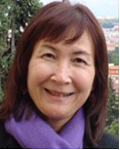
Pranee C. Lundberg
Uppsala University, Sweden
Title: Sexually transmitted diseases: Knowledge, attitudes and beliefs among Vietnamese young women
Biography
Biography: Pranee C. Lundberg
Abstract
Sexually transmitted diseases (STDs) are a growing problem worldwide, and premarital sex increases. Especially in low-income countries with lack of knowledge and health care facilities they are a heavy burden. Therefore, the aim was to investigate knowledge, attitudes and beliefs related to STDs among Vietnamese young women by use of quantitative and qualitative methods. Purposive sampling was used at two vocational schools in Ho Chi Minh City. Voluntary 15-24 year-old women were divided into two groups: 187 answered a questionnaire and 31 participated in four focus groups. Data were analysed by use of descriptive statistics and qualitative content analysis, respectively. Most of the women knew about HIV/AIDS but few knew about chlamydia and herpes. The majority knew causes and routes of STDs but some had misconceptions and lacked knowledge. The women had received information from magazines, Internet, TV, school/college and friends. They agreed that young adults should acquire knowledge about STD prevention and that those who get STDs should be treated. They believed that young adults are a high-risk group and that STDs can be prevented. Five categories emerged: having information but lack of knowledge, different sources of STDs, sexuality and unsafe sex, sharing responsibility to prevent STDs, and need of sexual and reproductive health education. In conclusion, the study highlights the young women’s misconceptions and their lack of knowledge about STDs and STD prevention. Healthcare providers should be aware of lifestyles and cultural beliefs of young adults and offer sexual and reproductive health education programs to young women.

